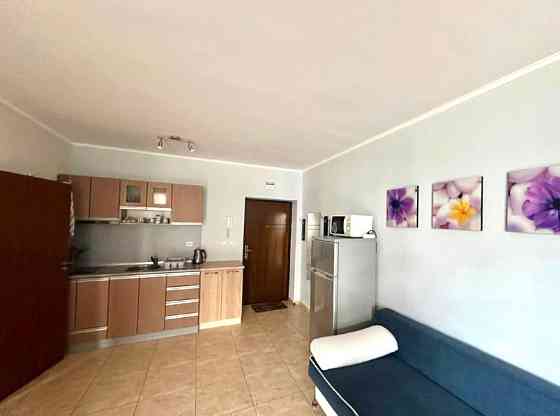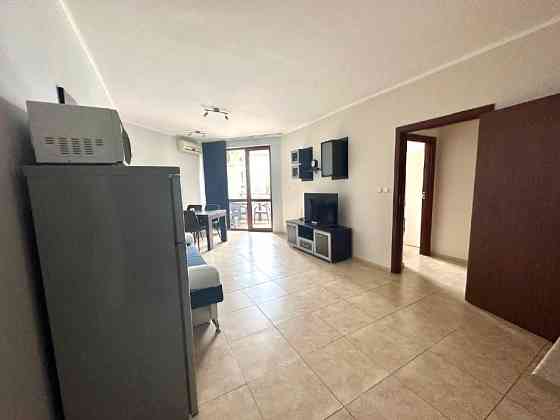
Kuwait Real Estate Market — Steady Growth and Great Potential
The Kuwaiti real estate market has shown steady growth in recent years. According to the Kuwaiti Ministry of Justice, in 2024, the total value of real estate transactions reached $9 billion, and the number of transactions increased by 11.4% compared to the previous year and amounted to 4,950 transactions. This growth is due not only to domestic demand, but also to growing interest from foreign investors.
Kuwait has a number of advantages that make it attractive for real estate investment:
- Economic stability — Kuwait is one of the largest oil producers in the world, which provides the country with a stable income flow and a sustainable economy.
- Developed infrastructure — The Kuwaiti government is actively investing in infrastructure development, the construction of new districts and improving the quality of life of the population.
- Strategic location — Kuwait is located at the crossroads of trade routes between Europe, Asia and Africa, which makes it a convenient place for doing business and investing.
- Growing Population – Kuwait’s population is constantly growing, creating a steady demand for residential and commercial properties.
However, unlike some other Gulf countries such as the UAE or Bahrain, the Kuwaiti property market is not completely open to foreign investors. There are certain restrictions and requirements that must be met in order to qualify for the purchase of property in Kuwait.
- The most privileged position in the Kuwaiti property market is occupied by citizens of the countries that are members of the Gulf Cooperation Council (GCC). These are Bahrain, Qatar, Oman, Saudi Arabia and the United Arab Emirates. Citizens of these countries can purchase property in Kuwait on the same terms as local residents, without any restrictions on the number of properties or their area. This is due to the close economic and political cooperation between the GCC countries.
- For citizens of Arab countries that are not members of the GCC, stricter restrictions apply. They can only purchase real estate in Kuwait if they meet the following conditions: at least 10 years of residence in Kuwait, no criminal record, a property purchase area limited to 1,000 square meters, and own only one property.
- For investors from non-GCC and non-Arab countries, the options for purchasing real estate in Kuwait are even more limited. In fact, direct purchase of real estate is not possible for them.
- However, there are several options that allow foreign investors to participate in the Kuwaiti real estate market:
- Creating a joint venture with a Kuwaiti partner — a foreign investor can create a company in partnership with a Kuwaiti citizen who will own at least 51% of the capital. Such a company will be able to purchase real estate in accordance with local laws.
- Investing in free economic zones — Kuwait has special free economic zones where foreign investors can own 100% of the capital of the company. However, these companies are not allowed to purchase real estate outside the free zones.
- Buying shares in companies that own real estate — Foreign investors can buy shares in Kuwaiti companies that own real estate. This gives them an opportunity to indirectly participate in the Kuwaiti real estate market
Install our app and get all the tools you need to search for real estate abroad in your smartphone! The mobile application will allow you to quickly access your personal account, manage your favorite properties and track your requests, directly exchange messages with sellers and buyers.

Comparison with other GCC countries — UAE and Saudi Arabia
- The Kuwaiti real estate market is very different from other GCC countries such as the UAE and Saudi Arabia. The main difference is the degree of openness to foreign investors.
- In the UAE, especially Dubai, the real estate market is almost completely open to foreigners. They can buy real estate without restrictions on the number of properties or their area. This has led to the rapid growth of the market and the transformation of Dubai into one of the main centers of real estate investment in the world.
- In Saudi Arabia, the situation is closer to the Kuwaiti model. Foreign investors can buy real estate only in certain areas and subject to certain conditions. However, in recent years, Saudi Arabia has been taking steps to liberalize the economy and gradually open the real estate market to foreigners.
- Another difference is in the price dynamics and availability of housing. In Kuwait, the ratio of the median price of an apartment to the family income is 7.5, which is significantly higher than in Saudi Arabia (3.7) and the UAE (4.1). This means that real estate in Kuwait is less affordable for the local population than in neighboring countries.
Prospects for the Development of the Kuwait Real Estate Market
Despite the existing restrictions, the Kuwait real estate market has good prospects for further growth and development. This is facilitated by several factors:
- Government investment in infrastructure — the Kuwaiti government is implementing large-scale projects to develop infrastructure, build new cities and improve the quality of life of the population. This creates favorable conditions for investment in real estate.
- Growing demand for affordable housing — the population of Kuwait is growing, and with it the demand for residential real estate, especially in the affordable housing segment, is increasing. This opens up opportunities for investors willing to work in this market segment.
- The Kuwait Vision 2035 program — a strategic development program for Kuwait — provides for large-scale investment in real estate and the creation of new areas remote from the coast. This should lead to a more balanced development of the country's territory and reduce the burden on the capital.
- Potential easing of restrictions for foreign investors — although Kuwait currently maintains strict restrictions for foreign investors, this situation may change in the future. As the economy develops and competition for investment intensifies, Kuwait may gradually liberalize its real estate market.
However, investors should also be aware of the potential risks and challenges that the Kuwaiti real estate market may face:
- Dependence on oil prices — Kuwait's economy is heavily dependent on oil exports, so fluctuations in energy prices may impact the real estate market and the overall economic situation in the country.
- Limited supply — Strict regulations and restrictions on foreign investor participation may constrain the development of the real estate market and lead to supply shortages in some segments.
- Potential changes in legislation — Investors should closely monitor potential changes in Kuwait's legislation, especially in terms of foreign investment regulation and taxation. Any significant changes may impact the attractiveness of the country's real estate market.
In summary, the Kuwaiti real estate market is in the process of gradually opening up to foreign investors. Although there are certain restrictions and barriers, especially for investors from non-Arab countries, Kuwait remains an attractive real estate investment destination in the Gulf region. A stable economy, developed infrastructure, growing population and government investment create favorable conditions for the growth of the Kuwaiti real estate market. At the same time, investors need to consider the specific features and restrictions in force in the country and carefully choose a market entry strategy.
In the long term, the Kuwaiti real estate market has good potential for development, especially in the affordable housing segment and in light of the implementation of large-scale government projects. However, investors also need to take into account potential risks and challenges associated with the economy's dependence on the oil sector and possible changes in legislation. With a competent approach and careful analysis of the market, investing in Kuwait real estate can become a profitable and promising direction for international investors interested in developing their presence in the Persian Gulf region.
 9
9
 6
6
 25.1
25.1  1
1  1
1  1
1  2
2  15
15
 18
18

New Zealand has radically reformed its investment visa program, turning it into one of the most accessible and flexible in the world. The removal of language requirements, a reduction in mandatory length of stay and an expansion of investment opportunities have led to a sharp increase in interest from foreign investors. We will tell you about the details of the reform, the benefits for investors and the impact on the region's economy.

House and rental prices in the EU continued their record growth in 2024, with real estate prices up 4.9% and rents up 3.2%. The Baltic and Central European countries such as Estonia, Lithuania and Hungary led the way, while some Western European countries experienced a cooling market. Experts predict a slowdown in price growth in 2025. We offer a detailed analysis of the trends and influencing factors.

Branded Residences are the next big thing in luxury real estate. Created in partnership with iconic brands, these luxury projects offer investors a unique combination of status, comfort and financial benefits. Find out why branded residences have become the number one choice for wealthy buyers around the world and how to become part of this exclusive club.


























